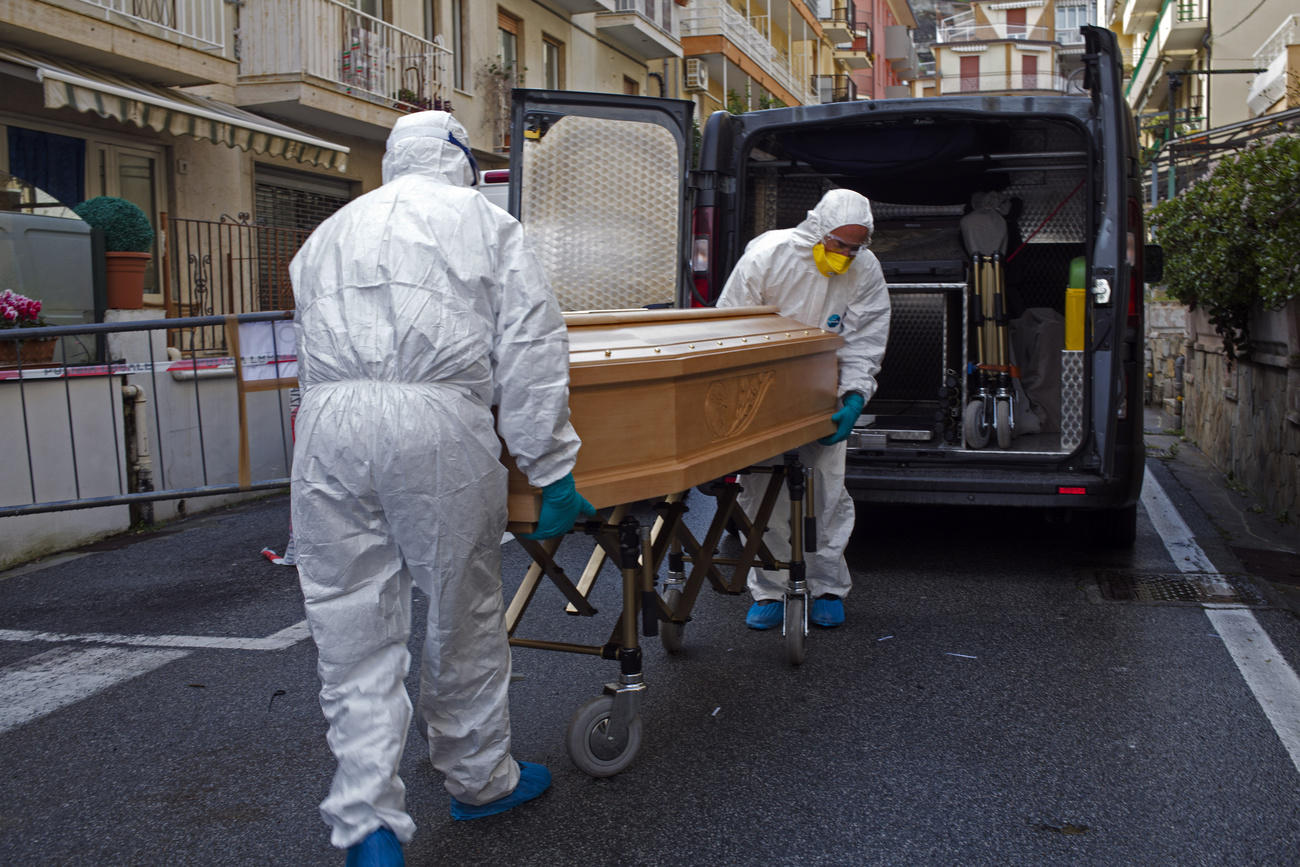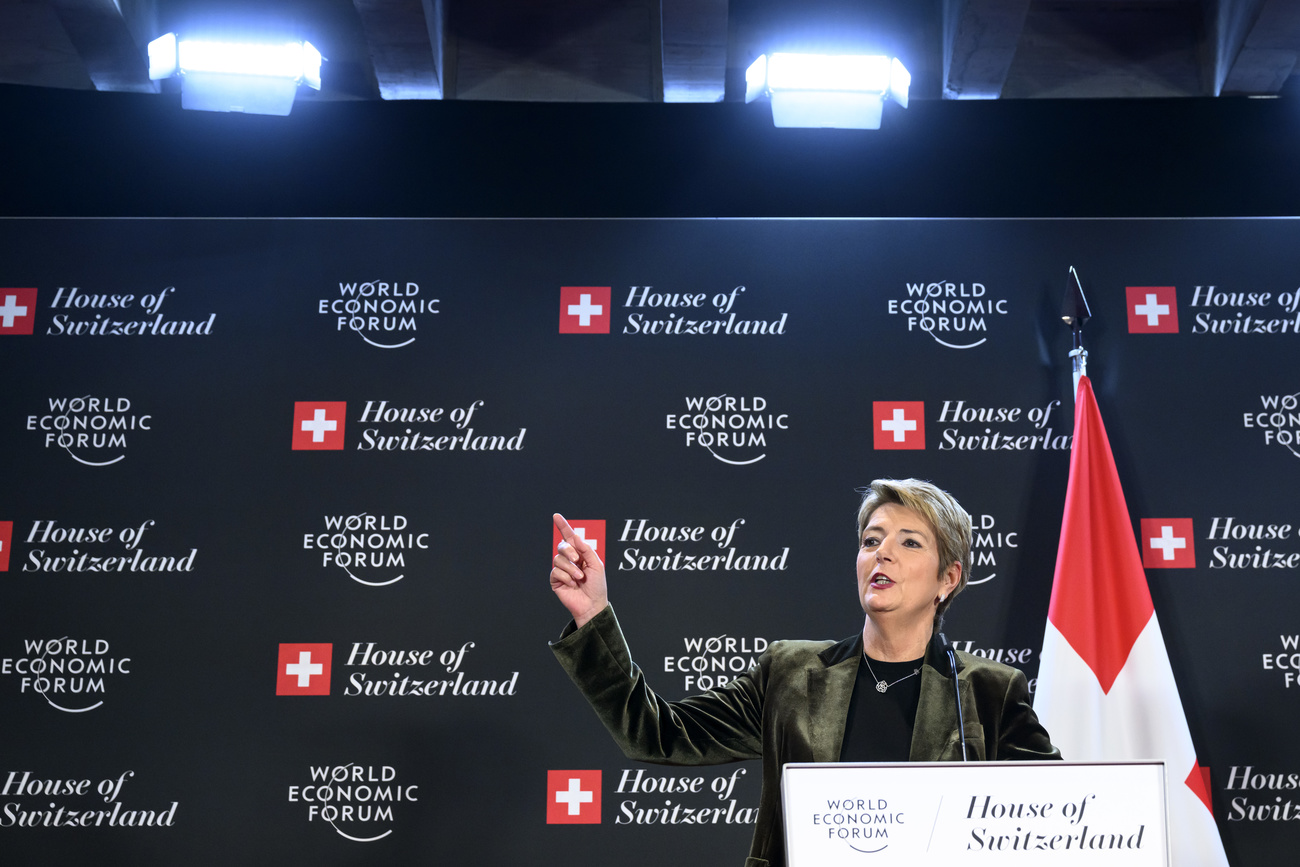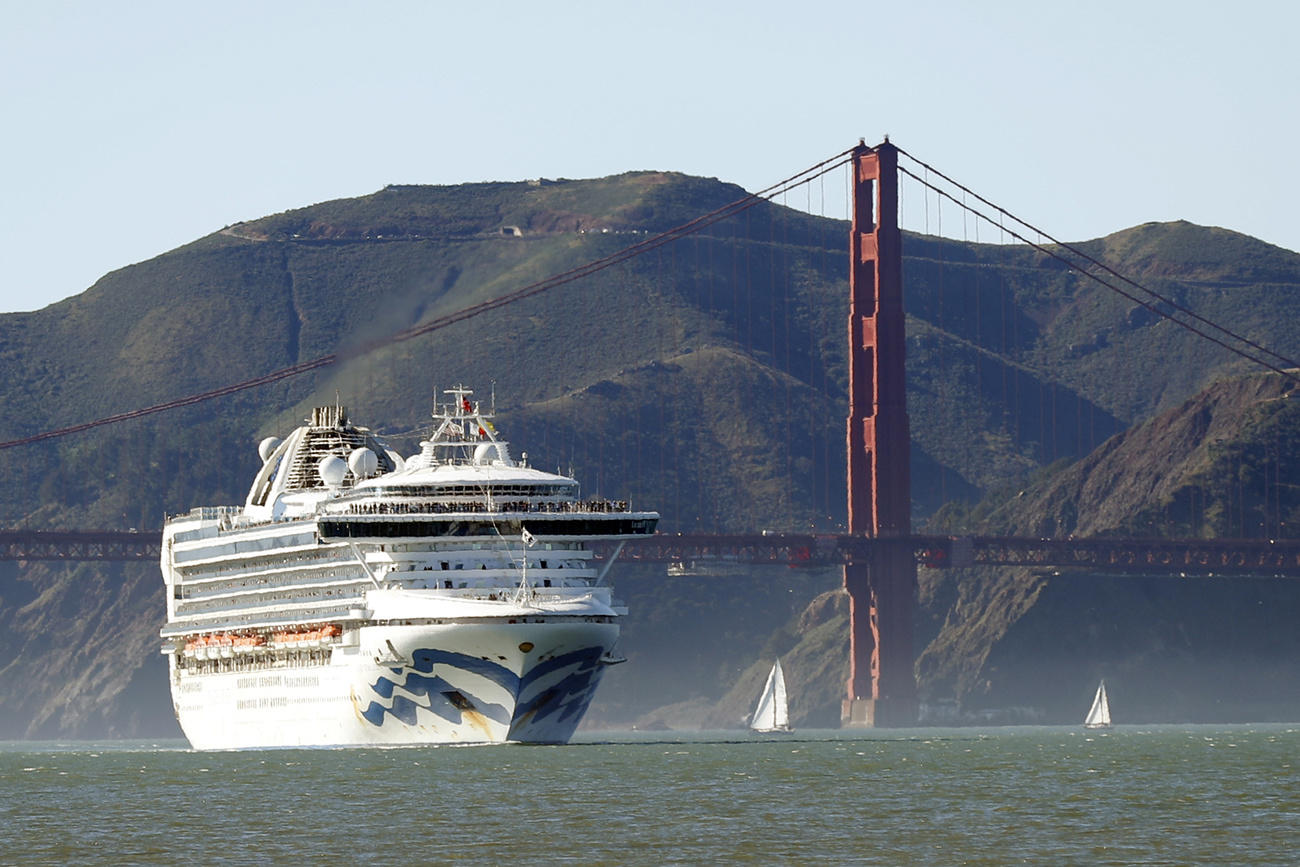Border with Italy should be shut, say a quarter of Swiss in poll

Although one in four Swiss questioned by a Sunday newspaper thinks the border with Italy should be closed because of the coronavirus epidemic, most respondents support the Swiss government’s crisis management and measures.
For example, 76% of those polled by the SonntagsBlickExternal link considered the ban on events of more than 1,000 people to be appropriate. In addition, 86% felt that the Federal Office of Public Health (FOPH) had provided sufficient information about the virus.
The survey, conducted from March 3-6 among 1,074 people across the country, also found that two-thirds felt little or no threat from the virus, 24% classified the risk of Covid-19 as medium, 8% as high. The values had hardly changed compared with the previous week.
Every fourth person was in favour of closing the borders with Italy, which is one of the countries hit hardest by the virus, along with China, South Korea and Iran.
On Sunday Italy ordered a virtual lockdown across a swathe of its wealthy north in a drastic attempt to try to contain a rapidly growing Covid-19 outbreak (see box).
The Swiss government and European health ministers have so far spoken out against closing the borders because of the far-reaching consequences.
Prevention measures
According to the SonntagsBlick survey, the Swiss population largely follows the prevention measures recommended by the government. Frequent hand washing was part of these measures for 93% of those surveyed, 76% avoided shaking hands and more than half were refraining from travelling abroad.
On the other hand, respondents didn’t think much of face masks: not even one in ten considered wearing one.
In Switzerland there are currently 281 diagnosed cases of Covid-19, the FOPH said on Sunday. Two people have died.
Italy
On Sunday Italy ordered a virtual lockdown across a swathe of its wealthy north, including the financial capital Milan, in a drastic attempt to try to contain a rapidly growing outbreak of coronavirus.
The unprecedented restrictions, which will affect some 16 million people and stay in force until April 3, were signed into law overnight by Prime Minister Giuseppe Conte.
The new measures say people should not enter or leave Lombardy, Italy’s richest region, as well as 14 provinces in four other regions, including the cities of Venice, Modena, Parma, Piacenza, Reggio Emilia and Rimini.
Conte said nobody would be allowed to move in or out of these areas, or within them, unless they had proven, work-related reasons for doing so, or health issues.
Deaths from the virus in Italy had also risen, by 36 to 233, while the number of patients in intensive care climbed to 567, up 23% from the day before. Of the 5,883 Italians originally infected, 589 have fully recovered, but the hospital system has come under increasing strain.
The northern regions of Lombardy, Emilia-Romagna and Veneto represent 85% of all cases and 92% of recorded deaths.

More
Coronavirus: the situation in Switzerland

In compliance with the JTI standards
More: SWI swissinfo.ch certified by the Journalism Trust Initiative






















You can find an overview of ongoing debates with our journalists here . Please join us!
If you want to start a conversation about a topic raised in this article or want to report factual errors, email us at english@swissinfo.ch.